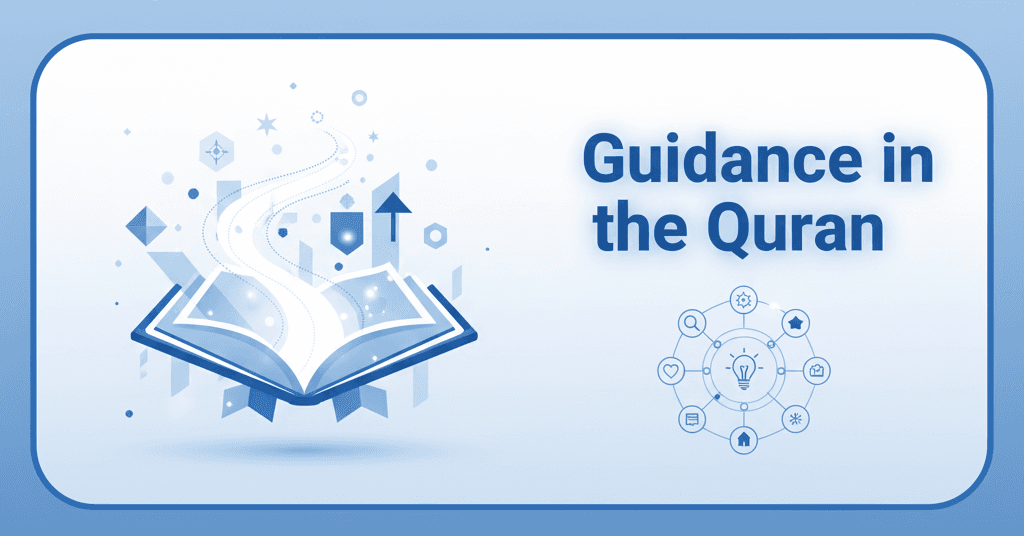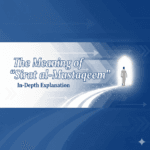Starting With The Name Of Almighty Allah
The Quran stands as a timeless source of wisdom, offering profound insights into human existence, spirituality, and society. For Muslims around the world, it represents not just a book, but a divine blueprint for living with purpose and integrity. In this exploration of the themes of the Quran explained, we’ll break down the Quranic themes in Islam that form the core of its teachings. These major messages of the Quran address everything from our relationship with the divine to how we interact with one another, providing a framework that has inspired billions over centuries. Whether you’re new to studying the holy text or seeking a deeper appreciation, understanding these Quran teachings and topics can transform your perspective on faith and daily life. Traditionally, Muslims view the Quran as the unaltered word of God revealed to Prophet Muhammad (peace be upon him), serving as ultimate guidance. From a historical or academic lens, scholars often examine it as a 7th-century Arabian text influenced by the socio-political context of the time, yet its universal appeal endures across cultures.
What are Quran Themes?
When people ask, “What are Quran themes?” they’re often looking for the foundational ideas that weave through its verses, shaping Islamic belief and practice. These themes aren’t isolated concepts but interconnected threads that emphasize humanity’s role in the world. The Quran repeatedly calls believers to reflect on its signs, encouraging a holistic approach to life. In traditional Islamic belief, these themes are seen as eternal truths directly from God, designed to lead humanity away from error. Academically, some researchers view them as responses to the challenges faced by early Muslim communities, such as tribal conflicts or ethical dilemmas, which adds layers to their interpretation without diminishing their relevance today. This section sets the stage for diving into specific themes, highlighting how they collectively form a comprehensive guide for personal and communal growth.
Oneness of God Quran Theme
At the heart of the Quran lies the oneness of God Quran theme, known as Tawhid, which asserts that there is no deity worthy of worship except Allah. This principle isn’t just a theological statement; it’s a call to recognize God’s absolute sovereignty over all creation, freeing individuals from superstitions and false idols. In everyday life, it encourages Muslims to align their actions with divine will, fostering humility and gratitude. Traditionally, Tawhid is the bedrock of Islam, unifying believers under one creator. From an academic perspective, historians note how this emphasis on monotheism distinguished early Islam from the polytheistic practices prevalent in pre-Islamic Arabia, promoting social cohesion.
“Say, ‘He is Allah, [who is] One, Allah, the Eternal Refuge. He neither begets nor is born, Nor is there to Him any equivalent.'”
(Quran 112:1-4)
A related Hadith reinforces this:
“The Prophet (peace be upon him) said, ‘The best remembrance is La ilaha illallah (There is no god but Allah), and the best supplication is Alhamdulillah (All praise is due to Allah).'” (Sunan Ibn Majah)
Exploring the roots of Islamic scripture can enhance our grasp of such core ideas. For instance, understanding the Quran’s definition helps contextualize Tawhid’s prominence. What is the Meaning of the Word ‘Quran’?
If you’re inspired to study these principles more closely, consider the structured Online Classes of Quran and the learning environments that can bring the text to life.
Prophethood in the Quran
Prophethood in the Quran serves as a vital link between God and humanity, with messengers sent to deliver guidance and warn against wrongdoing. The Quran recounts stories of prophets like Adam, Noah, Abraham, Moses, Jesus, and Muhammad (peace be upon them all), illustrating their roles in upholding truth amid adversity. This theme underscores that prophethood is a divine mercy, reminding people of accountability and the need for moral reform. In traditional views, prophets are infallible in conveying God’s message, models of virtue. Academically, some see these narratives as drawing from shared Abrahamic traditions, adapted to address contemporary issues in 7th-century Arabia.
“We have already sent Our messengers with clear evidences and sent down with them the Scripture and the balance that the people may maintain [their affairs] in justice.”
(Quran 57:25)
A supporting Hadith states:
“The Prophet (peace be upon him) said, ‘The prophets are paternal brothers; their mothers are different, but their religion is one.'”
(Sahih al-Bukhari 3443)
Delving into how the Quran was safeguarded can shed light on the authenticity of these prophetic accounts. Why is Quran considered perfectly preserved?
For those eager to explore prophetic teachings interactively, professional guidance and Online Quran Classes can make the journey rewarding.
Guidance in the Quran
The theme of guidance in the Quran portrays the holy book as a beacon for those seeking truth, often described as a light that illuminates the path away from darkness. It invites reflection on personal choices, urging believers to follow its directives for success in this world and the hereafter. This guidance covers spiritual, ethical, and practical matters, emphasizing free will alongside divine direction. Traditionally, Muslims believe the Quran’s guidance is infallible and comprehensive.

From a historical viewpoint, academics analyze it as a text that provided moral clarity during times of social upheaval, influencing legal and philosophical developments.
“This is the Book about which there is no doubt, a guidance for those conscious of Allah.”
(Quran 2:2)
A relevant Hadith highlights:
“The Prophet (peace be upon him) said, ‘The Quran is an intercessor, something given permission to intercede, and it is rightfully believed in. Whoever puts it in front of him, it will lead him; whoever puts it behind him, it will drive him.'”
(Sahih Ibn Hibban Hadith 124)
Tracing the Quran’s assembly offers insight into how this guidance was preserved for generations. How Was the Qur’an Preserved? The Story of the Qur’an’s Compilation into a Single Book
To truly internalize this guidance, dedicated sessions of Quran Learning Classes with experts can provide clarity and depth.
Quran Theme of Worship
The Quran theme of worship extends beyond rituals to encompass a lifestyle of devotion, where acts like prayer, fasting, and charity become expressions of submission to God. It stresses sincerity in worship, warning against showiness, and positions it as a means to attain inner peace and community harmony. Traditionally, worship is viewed as the purpose of creation, strengthening the bond with the divine. Academically, scholars observe how these practices fostered discipline and unity in early Islamic societies, contrasting with ritualistic excesses of other traditions.
“And I did not create the jinn and mankind except to worship Me.”
(Quran 51:56)
A Hadith elaborates:
“The Prophet (peace be upon him) said, ‘The five prayers are like an overflowing river which is at the door of one of you in which he washes five times daily.'”
(Hadith number 1411)
Examining the standardization of the text can reveal how worship instructions remained consistent. The Role of Caliph Uthman in Standardising the Qur’an.
Engaging in systematic study in Quran Classes Online helps integrate worship into daily routines effectively.
Quran Ethics and Morals
Quran ethics and morals form a comprehensive code that promotes virtues like honesty, compassion, and patience while condemning vices such as lying and oppression. These teachings encourage self-improvement and considerate interactions, viewing moral conduct as integral to faith. In traditional Islamic thought, ethics are divinely ordained, leading to spiritual elevation. Historically, academics note how the Quran’s moral framework addressed ethical voids in pre-Islamic Arabia, influencing global philosophical discussions on virtue.
“And do not approach immoralities – what is apparent of them and what is concealed. And do not kill the soul which Allah has forbidden [to be killed] except by [legal] right. This has He instructed you that you may use reason.”
(Quran 6:151)
A Hadith affirms:
“The Prophet (peace be upon him) said, ‘I have been sent to perfect good manners.'”
(Muwatta Malik Book 47, Hadith 8)
Clarifying common misunderstandings about the Quran’s compilation can strengthen trust in its moral teachings. Misconceptions About the Compilation of the Holy Quran
For personalized exploration of these ethics, a reliable institution or an Online Quran Academy offers valuable support.
Justice in Quran Teachings
Justice in Quran teachings is portrayed as a fundamental obligation, demanding fairness in dealings, judgments, and social structures. It calls for upholding rights without bias, even if it disadvantages oneself or loved ones, promoting equity across all levels of society. Traditionally, justice is a divine attribute that believers must emulate. From an academic angle, the Quran’s emphasis on justice is seen as a reformative response to tribal inequalities, laying groundwork for modern human rights concepts.
“O you who have believed, be persistently standing firm in justice, witnesses for Allah, even if it be against yourselves or parents and relatives.”
(Quran 4:135)
A Hadith supports:
“The Prophet (peace be upon him) said, ‘Help your brother, whether he is an oppressor or he is an oppressed one.’ People asked, ‘O Allah’s Messenger! It is all right to help him if he is oppressed, but how should we help him if he is an oppressor?’ The Prophet said, ‘By preventing him from oppressing others.'”
(Sahih Bukhari 2444)
Understanding the timeline of the Quran’s publication aids in appreciating its enduring call for justice. When was the Quran Published? Who Compiled the Quran into A Book?
Structured programs in an Online Quran School can help apply these teachings practically in life.
Social Justice in the Quran
Building on individual fairness, social justice in the Quran addresses broader inequalities, advocating for the care of orphans, the poor, and the marginalized through systems like Zakat (charity) and equitable resource distribution. It critiques exploitation and encourages communal responsibility, envisioning a society where dignity is universal. In traditional beliefs, this reflects God’s mercy toward the vulnerable. Academically, it’s interpreted as a socio-economic critique of class divisions, inspiring movements for reform throughout history.
“And establish prayer and give zakah and obey the Messenger – that you may receive mercy.”
(Quran 24:56)
A Hadith emphasizes:
“The Prophet (peace be upon him) said, ‘The believers in their mutual kindness, compassion, and sympathy are just like one body. When one of the limbs suffers, the whole body responds to it with wakefulness and fever.'”
(Sahih Bukhari 6011 and Muslim 2586)
Comparing sacred texts can highlight the Quran’s unique approach to social issues. Is the Quran the same as the Bible?
To deepen your engagement with these principles, consider comprehensive learning options and take Quran Online Courses.
Life After Death in Quran
The concept of life after death in Quran serves as a motivator for righteous living, detailing the resurrection, judgment, and eternal abodes of paradise or hell based on deeds. It reminds us of life’s transience and the ultimate accountability before God, blending hope with caution. Traditionally, this eschatology reinforces faith’s urgency. Academically, parallels are drawn with other Abrahamic views on the afterlife, seen as a tool for ethical persuasion in ancient contexts.
“Every soul will taste death, and you will only be given your [full] compensation on the Day of Resurrection.”
(Quran 3:185)
A Hadith describes:
“The Prophet (peace be upon him) said, ‘When a human being is laid in his grave and his companions return and he even hears their footsteps, two angels come to him and make him sit and ask him: What did you use to say about this man, Muhammad? He will say: I testify that he is Allah’s slave and His Apostle. Then it will be said to him, Look at your place in the Hell-Fire. Allah has given you a place in Paradise instead of it.'”
(Sahih Bukhari 1338)
Assessing scriptural accuracy can enrich discussions on eternal themes. Which is more accurate Bible or Quran?
Ongoing lessons can prepare one for reflecting on such profound topics in the Quran Online Lessons.
Closing Note
As we wrap up this journey through the major themes in the Quran, it’s clear how these interconnected ideas offer timeless wisdom for navigating life’s complexities. At Najam Academy, we pride ourselves on being a leading online Quran Academy in the USA and UK, with a global reach that brings the best online Quran education to learners everywhere. Our affordable packages make high-quality instruction accessible, whether you’re beginning your studies or advancing your knowledge. Join us to experience personalized, expert-led sessions that bring these teachings to life, fostering spiritual growth in a supportive environment.
Key Citations
- Surah Al-Ikhlas (112:1–4)
- Surah Al-Hadid (57:25)
- Surah Al-Baqarah (2:2)
- Surah Adh-Dhariyat (51:56)
- Surah Al-An‘am (6:151)
- Surah An-Nisa (4:135)
- Surah An-Nur (24:56)
- Surah Aal-e-Imran (3:185)
- Sunan Ibn Majah – Hadith 3790
- Sahih al-Bukhari – Hadith 3443
- Sahih Ibn Hibban – Hadith 124
- Sahih al-Bukhari – Hadith 1411
- Muwatta Malik – Book 47, Hadith 8
- Sahih al-Bukhari – Hadith 2444
- Sahih Bukhari 6011 and Muslim 2586
- Sahih al-Bukhari – Hadith 1338




